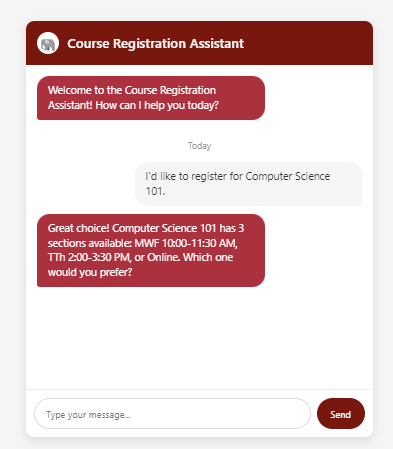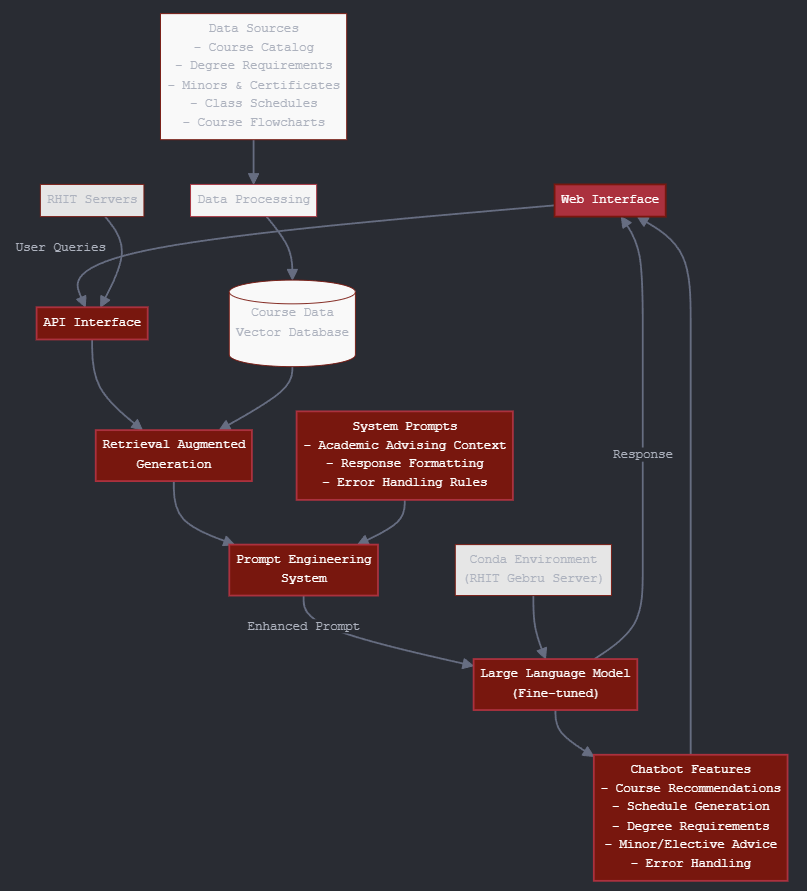Freshmen Advising LLM
Project Overview
The Freshmen Advising LLM project was developed to enhance academic advising resources at Rose-Hulman Institute of Technology. This specialized language model was designed to understand and answer questions about the institution's academic policies, course offerings, and advising best practices. The system helps faculty members provide consistent guidance to students while giving freshmen direct access to accurate information about academic requirements and policies.
The project involved collecting and structuring data from various academic resources including the student handbook, course catalog, academic rules and procedures, and advising materials. We implemented a Retrieval-Augmented Generation (RAG) system to provide accurate, contextual responses backed by official documentation. The model was fine-tuned to maintain the tone and style appropriate for an academic advising context.
Screenshots


Technologies
Key Features
Accurate academic policy information retrieval
System combines vector search and semantic understanding to accurately retrieve and present relevant academic policies from institutional documentation.
Question answering system for freshmen advising
Intuitive natural language interface that allows students to ask questions about course requirements, registration procedures, and academic policies in conversational language.
Fine-tuned language model with academic context
Custom-trained model that understands Rose-Hulman specific terminology, course codes, and academic structures to provide institution-specific guidance.
Web interface for easy access and use
User-friendly web application that allows both students and faculty to access the advising system from any device without specialized technical knowledge.
Performance metrics for continuous improvement
Built-in evaluation system that measures answer accuracy, relevance, and helpfulness to continuously refine and improve the model over time.